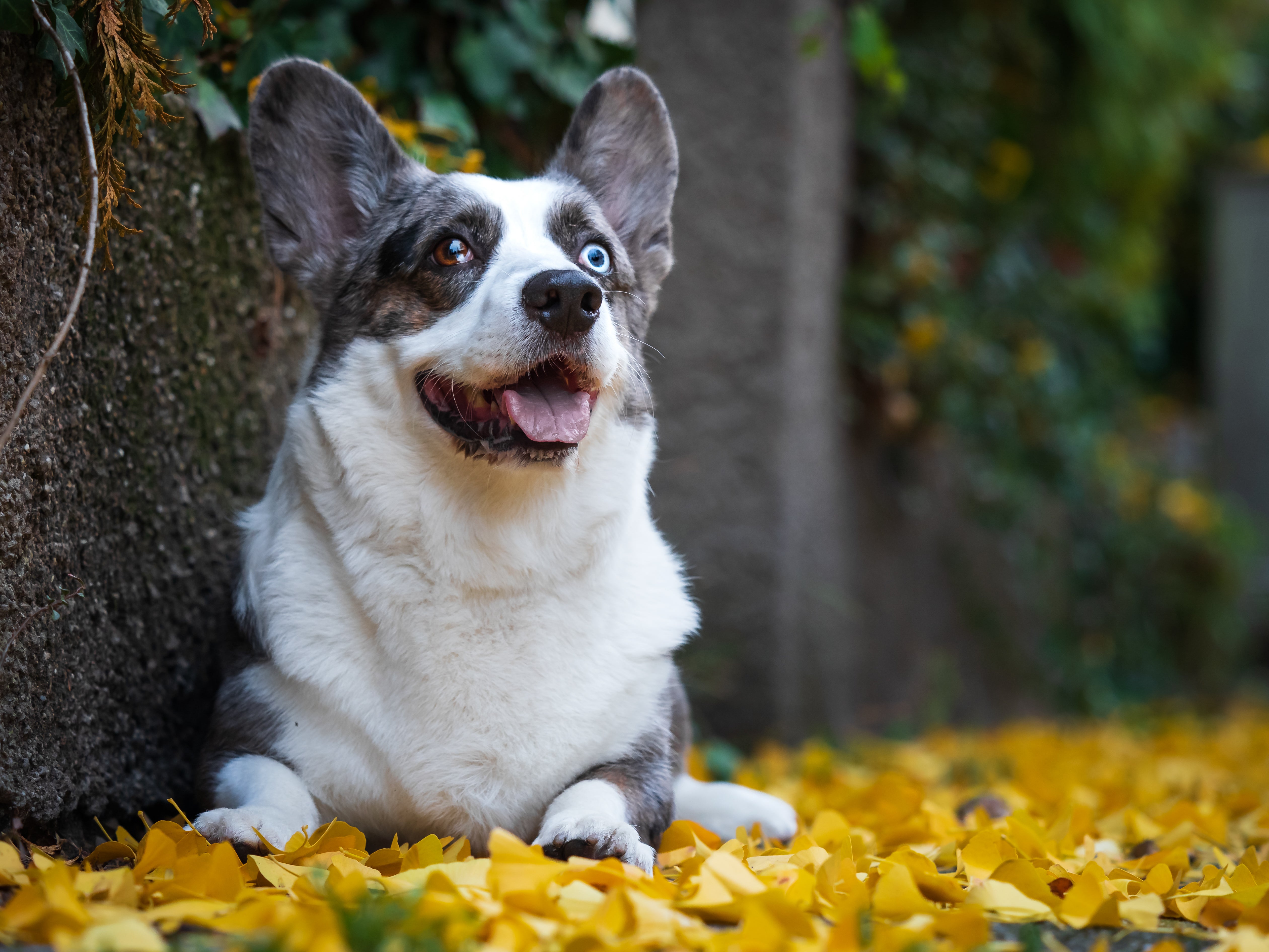Cardigan Welsh Corgi
Short and sturdy with distinctive ears, the Cardigan Welsh Corgi is heavy-boned but agile. They used to work as cattle drivers, relying on powerful endurance to get the job done. Small in size, the Cardigan Welsh Corgi dog has a double coat and a watchful, gentle, and friendly expression.
Breed characteristics carousel
Learn More
Need to Know
- Dog suitable for owners with some experience
- Extra training required
- Generally healthy breed
- Enjoys active walks
- Medium dog
- Minimal drool
- Requires frequent grooming
- Chatty and vocal dog
- Barks and alerts to visitors/anything unusual
- Could have issues with unknown dogs but gets along with known dogs
- May need additional training to live with other pets
- May need additional supervision to live with children
- Needs a small yard, either in suburban or rural areas
- Can be left alone occasionally with training
- AKC Registered Breed

Personality
The Cardigan Welsh Corgi dog breed is a highly spirited, sparky pup. They are goofy yet hardy, used to spending days dodging cattle kicks, although more likely now they are spending their days romping in a backyard. They can be well-behaved at home but do bark to alert. They can be scrappy with other dogs and reserved with strangers, but fun-loving and adoring with their owners.
Brought to the British Isles through Central Europe centuries ago, the Cardigan Welsh Corgi dog breed’s exact origins are unknown. They were originally used as watchdogs and hunting dogs before they found their true calling as cattle dogs. They drove cattle, nipping at their heels and dodging their kicks. The word Cordi is likely derived from the Welsh for “Cor” (to gather” and “Gi” (dog).
Present-day Cardigan Welsh Corgis likely have some brindle influence. The Cardigan and Pembroke Welsh Corgi dogs were considered one breed until the early 20th century, and breeding between the two was common. The dogs first came to America in the 1930’s. The Pembroke Welsh Corgi is the more popular of the two breeds, but the Cardigan remains modestly popular.
Farm life is a good life for Cardigan Welsh Corgi dogs, especially with owners who have experience with these working breeds. They love to work and enjoy it. A perfect day for them is work mixed with play such as dog games. They are good for homes with older children as their nipping instinct can be very strong and not the best fit for families with small children.
Cardigan Welsh Corgi dogs love nothing more than to walk miles on end. While they are not big runners, they have a ton of stamina and will exercise to their heart’s content, especially if you have something they can herd, whether cattle or a herding toy.
Cardigans can get by on a little bit of space indoors, but outdoors, they need a fenced-in yard that is Corgi-proof. They dig and can escape through the smallest of gaps. They have long bodies and short legs, so Cardigan Welsh Corgi puppies and dogs shouldn’t use stairs excessively. While they can live in smaller spaces, they are vigilant watchdogs, barking to alert, something neighbors in close quarters might not enjoy.
Short or medium in length, the Cardigan Welsh Corgi dog’s coat is waterproof. A little bit of grooming goes a long way with this breed, and brushing a couple of times a week should get the job done as far as removing loose or dead hairs. If they’ve gotten muddy—which they are inclined to do—let them dry before shaking off the dirt.
Cardigan Welsh Corgis might need an extra little bit of motivation to train, but toys and treats will do the trick. They have big brains in their small bodies and will enjoy lots of games, puzzles, and tricks.
If your family has older children and lives an active or pastoral lifestyle, the Cardigan Welsh Corgi dog can be a good fit. Smaller children might find themselves caught up in the dog’s herding instinct, which means they could be nipping at toddler heels.
The cost of a Cardigan Welsh Corgi from a breeder is significantly more than the cost of adopting one from a local shelter or rescue. The adoption fee usually covers additional items such as spaying or neutering, vaccines, and microchipping.

Learn more about feeding and caring for your Cardigan Welsh Corgi on Purina.
Did you know?
- In Welsh, the Corgi was called “Ci Llathaid.” This means “yard dog,” referring not to its location and work but to its length, suggesting the dog was a yard long from its nose to tail.

